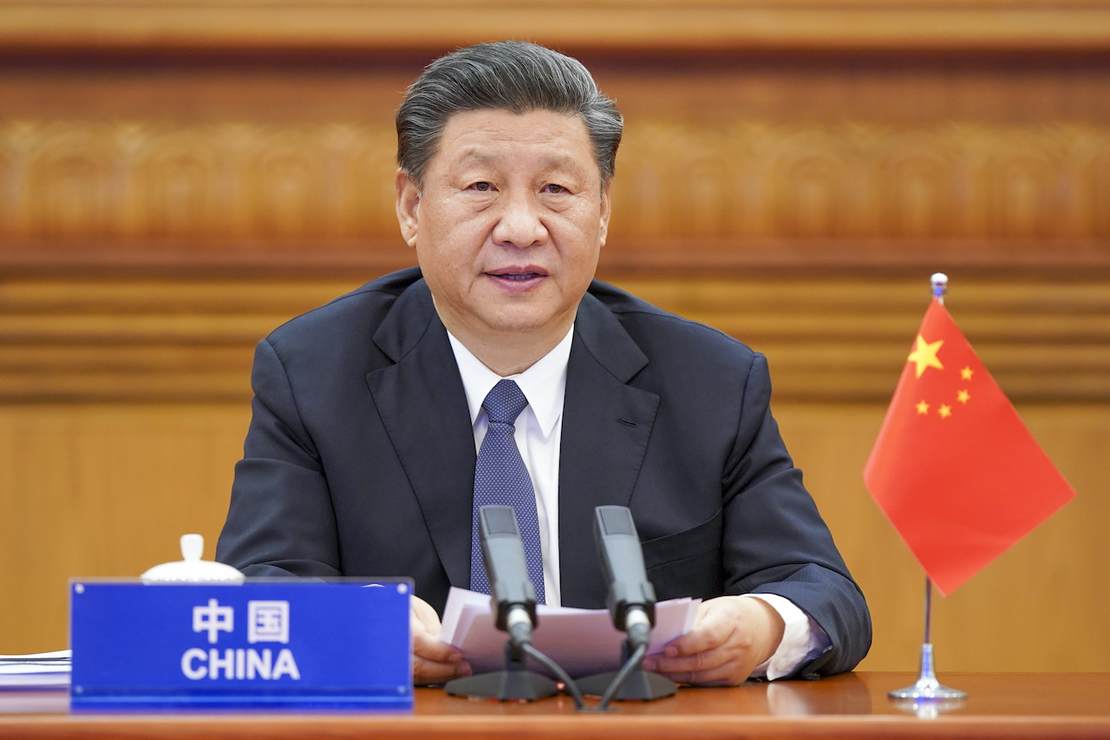
China’s Politburo has reiterated support for the country’s zero-COVID policy along with threats to deal with anyone who questions it. This report comes from Chinese state media:
China’s pandemic prevention work is reaching a critical stage where failure to advance will lead to retreat, according to a meeting Thursday of the Politburo’s Standing Committee chaired by President Xi Jinping. “Persistence is victory,” the committee said.
China will speed up measures to tackle regional flare-ups, and it is too early to stand down as outbreaks remain high worldwide and the virus continues mutating, the top decision-making body said…
China will “resolutely adhere to the dynamic zero-Covid strategy and fight against any speech that distorts, questions or rejects” the virus control policies, the body said.
But the predictable economic results of the policy, which forces people to stay in their homes for weeks at a time, are starting to show. Lockdowns of tens of millions of people across major cities like Shanghai and Beijing are causing a contraction of the economy.
The Caixin purchasing managers’ index, a closely-watched indicator for assessing the state of the economy, plummeted to 36.2 in April from 42 in March, according to a survey released by IHS Markit on Thursday. A reading below 50 indicates contraction, while anything above that gauge shows expansion.
The services sector accounts for more than half of the nation’s GDP and over 40% of its employment. And with survey data showing China’s manufacturing sector also shrinking last month, the world’s second biggest economy went backwards in April.
While conditions might improve this month as Covid infections rates ease and officials try to limit the damage to the economy, large parts of Beijing have just been placed under tighter restrictions and some economists are now forecasting that Chinese GDP will decline in the second quarter.
Many people are stuck in the unenviable position of having to pay bills even as the government forbids them to go to work.
After over a month in lockdown, Zeng Jialin could finally return to the Shanghai auto parts factory where he had worked. He was about to be released from an isolation facility, having recovered from Covid-19, and was desperate to make up for the many days of wages he had missed.
READ RELATED: Rumor: Chemical attack in Mariupol
But on Tuesday, the day he was supposed to be released, someone in the crowded isolation facility tested positive again. Mr. Zeng, 48, was ordered to wait 14 more days.
“I have three kids, in college, middle school and elementary school. The pressure is huge,” he said in a phone interview from the facility. Much of his $30 daily wage had supported them. “I also owe money to the bank, so I’m very anxious.”
Naturally the official unemployment statistics out of China are suspect. They don’t include an estimated 280 million migrant workers and they only measure people who are eligible for new work in two weeks, which people under lockdowns obviously are not. Recently China announced it would provide “living allowances” to migrant workers. Outside observers see that as a sign that the situation is much worse than the official figures show.
“The announcement itself is a hint that there is potentially something a lot bigger going on in this contingent piece of the labor market,” Mr. Roach said. “This could well be China’s biggest challenge since the ’08-09 period.”
So Xi Jinping has decided that saving face matters more than the performance of the economy in the short term. There are clearly millions of people who don’t like that, unfortunately none of them have a say in Xi’s China.
Update: I missed this initially but it’s pretty striking. Hu Xijin has been a top government mouthpiece for years (he recently retired as a editor-in-chief for a major state media site). Even he has criticizing the government lockdowns (before getting censored).
“Shanghai has fallen,” Hu Xijin, former editor-in-chief of the state-backed nationalist tabloid Global Times, said on the Twitter-like Weibo on Thursday.
Beijing has to either find less costly ways of tackling its outbreak or “to tell the whole Chinese society the truth” that disruptive consequences cannot be avoided, he said.
“The former requires wisdom, the latter courage.”
The post was swiftly removed. Hu did not respond to a Reuters request for comment sent to his Weibo account.
Source:





